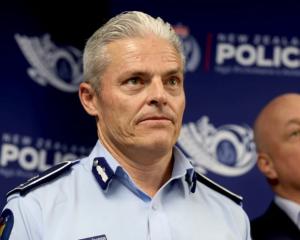Bailey Junior Kurariki, the country's youngest convicted killer, has been released from prison in a surprise court decision today.
Kurariki, who was sent back to prison late last month for breaching his parole conditions, was granted his release in the High Court at Auckland.
Kurariki, jailed at the age of 13 for seven years for manslaughter of Michael Choy in 2001, had applied for a writ of habeus corpus, through which a person can seek relief from unlawful detention.
Kurariki was due for release from prison in September, but the Parole Board granted him freedom in May, saying that would be safer for the community.
His release was on conditions including he not use or possess alcohol and/or illicit drugs.
He was also under electronic monitoring and had to attend weekly counselling sessions.
But he was arrested on July 25 after his probation officer lodged a complaint with the Parole Board that he had been smoking cannabis. He was taken to Auckland's Mt Eden Prison.
Kurariki will still have to appear at a recall hearing held by the Parole Board next week.
Parole Board chairman Judge David Carruthers said he had no comment on the High Court decision, which was binding on the board.
"The application for a final recall order is yet to be heard, and that will be decided on the usual basis, on information placed before the board, when that application is heard next week," Judge Carruthers said in a statement.
It is understood Kurariki will be present to be interviewed by the board about the alleged breach of his probation terms.
A decision will then be made whether he is recalled.
Kim Workman, director of lobby group Rethinking Crime and Punishment, said Kurariki's release did not alter the fact he breached his parole by smoking cannabis.
"He needs to be confronted about that, and a strategy put in place to deal with it," said in a statement.
"Those supporting Bailey would have preferred that the Probation Service sought community support and assistance in dealing with that issue, rather than recalling him to prison.
"It was an overreaction, as was the police decision to send 13 police officers and a helicopter to arrest him. It has the potential to sour Bailey's future attitude toward authority."
"What is now needed, is a strategy that encourages and supports his positive behaviour, rather than 'over the top' compliance requirements and enforcement. He may be 'high profile', but he is not considered by those who know him to be 'high risk'."












